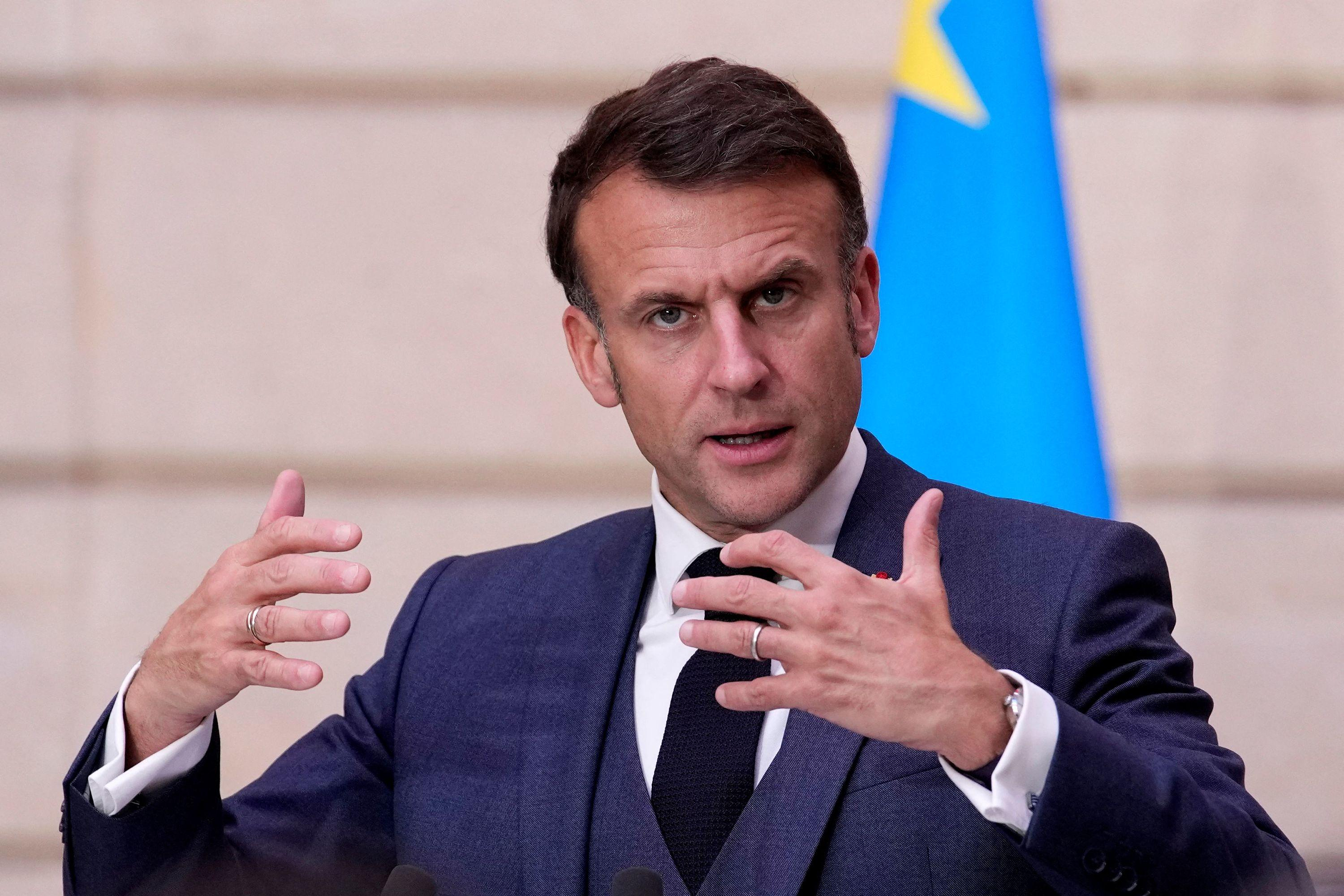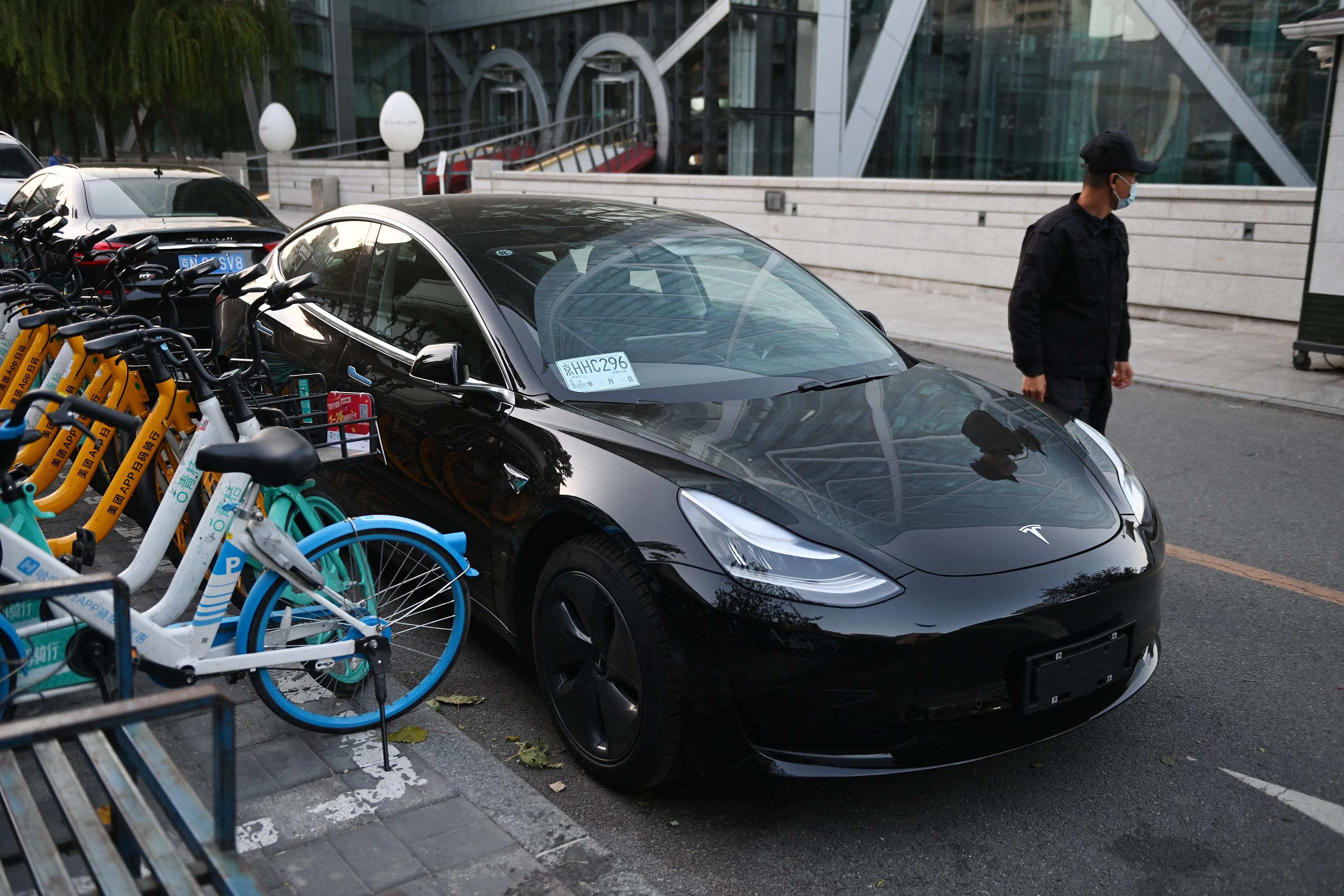“It’s a difficult decision, but necessary to get out of this situation for good, whatever the cost.” Invited on the TF1 set on Sunday evening, the Minister of the Economy Bruno Le Maire said goodbye to the “tariff shield”, which since 2021 has protected French households from soaring energy prices. Reduced to a minimum following the invasion of Ukraine, the internal tax on final consumption of electricity (TICFE) will increase to 21 euros per megawatt hour (MWh) on February 1. After two increases in 2023 (15% in February, 10% in August), the regulated electricity price is therefore preparing to record a new increase, between 8.6 and 9.8% for households and small businesses. And it's not over: on February 1, 2025, the TICFE will return to its pre-crisis level, i.e. 32.44 euros per MWh. Does this normalization mark the end of the French tariff exception? Is France about to lose its place among the leading European countries where electricity is the cheapest?
For Emmanuel Macron, there is no debate: “French prices will remain substantially lower” than those paid by consumers in European countries, assured the Head of State during his major press conference held last Tuesday. Since the start of the war in Ukraine, it is clear that French consumers have been particularly spared from the explosion in electricity prices. “Prices paid by French households remained relatively stable over the entire period, when they exploded in almost all European countries comparable to France,” maintains Jacques Percebois, professor emeritus at the University of Montpelier. , specialist in energy economics. Data from the Ministry of Energy Transition show that in 2022, VAT-inclusive electricity prices for households increased by 7% in France, when they jumped by 79% in Denmark and 40% in Belgium. On average, the bill for European consumers has soared by 14%, which makes the fate of the French relatively enviable.
In the first half of 2023, France was still at the top of the countries least to complain about in terms of kilowatt hours paid by households, according to Eurostat data. Its cost was 22 cents, less than the European average (29 cents). It is also twice less than the price paid by our Italian (41 cents), Belgian (43 cents) or German (42 cents) neighbors. Only the Eastern countries are doing much better, such as Bulgaria (11 cents), Hungary (12 cents) or Croatia (16 cents). “The prices in these countries are difficult to compare with those in the rest of Europe, because they are often the result of tax breaks or subsidies,” explains Jacques Percebois.
If we confine ourselves to Western and Southern Europe, France is therefore an exception. “Several factors make France a country of cheap electricity, starting with the prevalence of nuclear power,” explains the expert. The French electricity bill can be broken down into three parts: the supply cost (i.e. the cost of production and supply on the wholesale market), taxes and the cost of the network. “The low cost of nuclear power largely explains why France benefits from a lower price, since 50% of the price paid by French households is based on the cost of nuclear power,” explains Jacques Percebois. The Ministry of Energy Transition confirms: “France's favorable position is, historically, due to its energy mix, three-quarters of which is dominated by nuclear electricity, allowing it to limit the cost of supply,” we read in a document published in August 2023.
The other downward factor is taxes, which represent almost 20% of European electricity bills. To cope with soaring electricity prices on the wholesale market, EU countries have reduced their taxes on residential electricity by an average of 38% in 2022. Even France, which has much lower taxation than some of its neighbors in this area (48 euros/MWh compared to 122 euros/MWh in Germany), has drawn up a tariff shield consisting of reducing to a minimum the internal tax on final electricity consumption (TICFE) . Conversely, countries like Germany or Denmark have maintained very high taxes aimed at subsidizing the development of renewable energies, which has contributed to increasing household bills.
The fact remains that the “tariff shield” has masked a less brilliant movement for France: in 2022 and 2023, the cost of supplying French electricity has jumped, due to the historic unavailability of the French nuclear fleet. France was thus forced to import part of its electricity via the wholesale market, where the price of MWh depends largely on the price of gas, a consequence of European rules. With the gradual dismantling of the price shield that began last year, this explains why French consumers were less well off in 2023. As shown by data from the Belgian Electricity and Gas Regulatory Commission, household bills French in the second half of 2023 increased by 25% compared to the same period a year earlier. And this, even though Belgian and German households experienced an improvement of almost 40% in their bill.
Also read: France, the leading exporter of electricity in Europe
Is France in the process of losing its “favorable position”? This is what we fear from the barometer on the Hello Watt site, which measures electricity prices in the main European countries taking into account the price of the kWh but also the price of the subscription, all reduced to an average price for a consumption of 3500 kWh/year. First observation: at 29.8 euros per kWh on average, the French are no longer the champions of cheap electricity. Italian households (28.3 euros), but especially Spanish (17.4 euros) are now better off. The latter still benefit from the “Iberian exception”, also applied in Portugal, which allows a cap on gas prices and limits, by extension, the surge in household electricity bills.
Conversely, the French development raises concerns, exacerbated by the lifting of the tariff shield. “The high prices are attributable to the very low availability of power plants and the end of the tariff shield will remove all protection for households,” laments Sylvain Le Fahler, CEO of Hello Watt, according to whom “we should not expect to find competitive prices in France in the years to come. Some, however, want to be less pessimistic. “Even without a price shield, the consumer will continue to benefit from the fundamentally low cost of French nuclear power in the future,” said Jacques Percebois. For Nicolas Goldberg, energy expert for the Colombus Consulting firm, “French electricity is still cheap compared to European neighbors, with the exception of Spain”. “Thanks to regulated access to historic nuclear electricity (Arenh),” he explains.
More than the end of “whatever it takes”, it is the imminent replacement of the Arenh which worries specialists. Established in 2011, this system forces EDF to sell part of its electricity at the reduced rate of 42 euros per MWh. Regularly criticized, the Arenh will be abolished in 2026 in favor of a new agreement, setting the reference price of nuclear electricity sold by EDF at 70 euros per MWh. A shift from which consumers could not emerge as winners. “The bill will increase since all historic nuclear power will be sold at the wholesale market price, and we expect it to increase further, it remains to be seen in some proportions,” estimates Jacques Percebois. The CLCV consumer association, for its part, has already done the math: households will suffer a new increase of 10% on their electricity bill. Enough to bring France even closer to the bottom of the class... “If we do nothing, we may be experiencing the last moments of the competitiveness of French electricity,” sighs Nicolas Goldberg.

 Who was Dror Or, the Israeli father who died as a hostage in the hands of Hamas?
Who was Dror Or, the Israeli father who died as a hostage in the hands of Hamas? “Pay in cash”: at his trial, Donald Trump faced with an embarrassing recording
“Pay in cash”: at his trial, Donald Trump faced with an embarrassing recording Italy: a grandmother accidentally serves a bottle filled with wine to a baby, he has an alcoholic coma
Italy: a grandmother accidentally serves a bottle filled with wine to a baby, he has an alcoholic coma The mysterious skeletons of Hermann Göring's villa
The mysterious skeletons of Hermann Göring's villa Children born thanks to PMA do not have more cancers than others
Children born thanks to PMA do not have more cancers than others Breast cancer: less than one in two French women follow screening recommendations
Breast cancer: less than one in two French women follow screening recommendations “Dazzling” symptoms, 5,000 deaths per year, non-existent vaccine... What is Lassa fever, a case of which has been identified in Île-de-France?
“Dazzling” symptoms, 5,000 deaths per year, non-existent vaccine... What is Lassa fever, a case of which has been identified in Île-de-France? Sánchez cancels his agenda and considers resigning: "I need to stop and reflect"
Sánchez cancels his agenda and considers resigning: "I need to stop and reflect" What is the 'phantom flight' scandal for which Qantas is being forced to pay a hefty fine?
What is the 'phantom flight' scandal for which Qantas is being forced to pay a hefty fine? The State renews its promises of support for the automobile industry
The State renews its promises of support for the automobile industry Jump in bankruptcies and decline in business creations: which departments suffered the most in 2023?
Jump in bankruptcies and decline in business creations: which departments suffered the most in 2023? After 50 years of existence, “Numbers and Letters” will disappear from the France Télévisions channels
After 50 years of existence, “Numbers and Letters” will disappear from the France Télévisions channels The incredible musical juggling of the Basketteuses de Bamako
The incredible musical juggling of the Basketteuses de Bamako Death of Frank Stella, the most spectacular painter-sculptor
Death of Frank Stella, the most spectacular painter-sculptor Film buff's memories of the Champs-Élysées, by Éric Neuhoff
Film buff's memories of the Champs-Élysées, by Éric Neuhoff Madonna thrills Brazilians on Copacabana beach
Madonna thrills Brazilians on Copacabana beach Omoda 7, another Chinese car that could be manufactured in Spain
Omoda 7, another Chinese car that could be manufactured in Spain BYD chooses CA Auto Bank as financial partner in Spain
BYD chooses CA Auto Bank as financial partner in Spain Tesla and Baidu sign key agreement to boost development of autonomous driving
Tesla and Baidu sign key agreement to boost development of autonomous driving Skoda Kodiaq 2024: a 'beast' plug-in hybrid SUV
Skoda Kodiaq 2024: a 'beast' plug-in hybrid SUV The home mortgage firm rises 3.8% in February and the average interest moderates to 3.33%
The home mortgage firm rises 3.8% in February and the average interest moderates to 3.33% This is how housing prices have changed in Spain in the last decade
This is how housing prices have changed in Spain in the last decade The home mortgage firm drops 10% in January and interest soars to 3.46%
The home mortgage firm drops 10% in January and interest soars to 3.46% The jewel of the Rocío de Nagüeles urbanization: a dream villa in Marbella
The jewel of the Rocío de Nagüeles urbanization: a dream villa in Marbella Facing Jordan Bardella, the popularity match turns to Gabriel Attal’s advantage
Facing Jordan Bardella, the popularity match turns to Gabriel Attal’s advantage Europeans: a senior official on the National Rally list
Europeans: a senior official on the National Rally list Blockade of Sciences Po: the right denounces a “drift”, the government charges the rebels
Blockade of Sciences Po: the right denounces a “drift”, the government charges the rebels Even on a mission for NATO, the Charles-de-Gaulle remains under French control, Lecornu responds to Mélenchon
Even on a mission for NATO, the Charles-de-Gaulle remains under French control, Lecornu responds to Mélenchon These French cities that will boycott the World Cup in Qatar
These French cities that will boycott the World Cup in Qatar PSG-Dortmund: Mbappé revanchist, guru Luis Enrique, volcanic Parc des Princes… Reasons to hope
PSG-Dortmund: Mbappé revanchist, guru Luis Enrique, volcanic Parc des Princes… Reasons to hope “Canal will not be the gravedigger of French football”: the boss of the encrypted channel breaks the silence on Ligue 1 TV rights
“Canal will not be the gravedigger of French football”: the boss of the encrypted channel breaks the silence on Ligue 1 TV rights Toulouse-Leinster: a dream final and some nightmares
Toulouse-Leinster: a dream final and some nightmares Lille-Lyon: Jonathan David against Alexandre Lacazette, scorers duel for Europe
Lille-Lyon: Jonathan David against Alexandre Lacazette, scorers duel for Europe


















